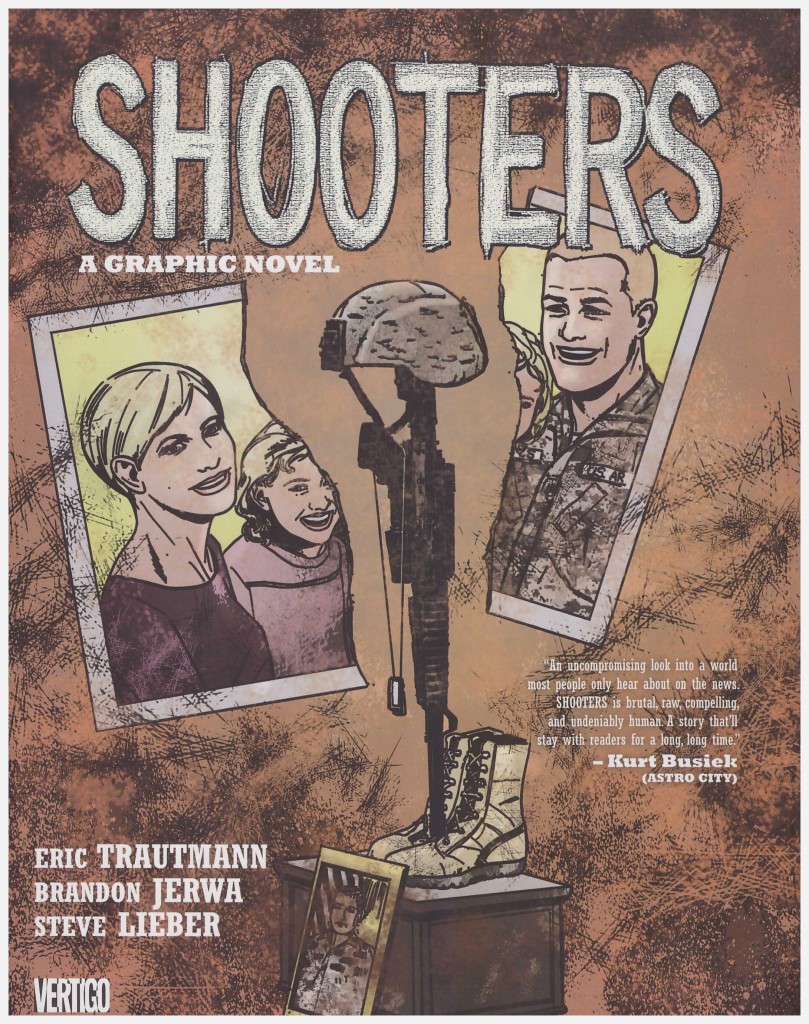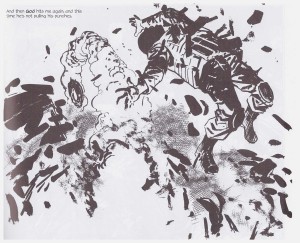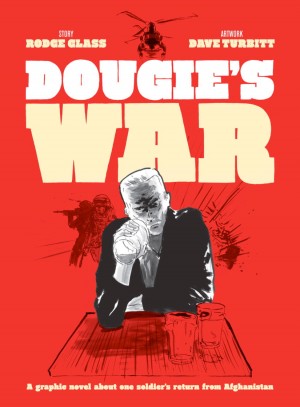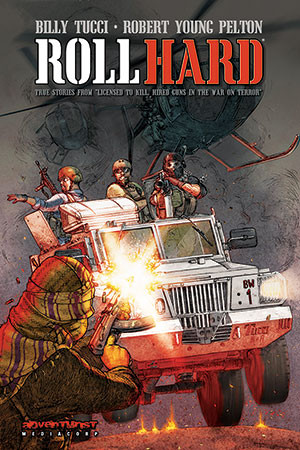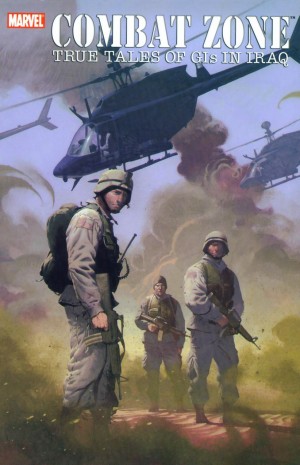Review by Ian Keogh
Shooters may be a very different story from any expectation engendered by the cover and the title, although they’re not misrepresentative, just open to individual interpretation. As he details in his excellent and moving introduction, Eric Trautmann married into a military family, and has a direct connection with tragedies that occurred in Iraq. This informs his narrative without being the driving plot.
The more traditional combat expectations bookend other events, kicking off as we’re introduced to warrant officer Terry Glass and his squad in Iraq. Glass is an observant man, and the mission his troop are handed rubs against his instincts. He’s proved right in the most tragic manner, and shipped home injured.
Trautmann and co-writer Brandon Jerwa here provide the meat of the book. Glass returns to suburban Longview with two objectives, to discover exactly what occurred during his final mission in Iraq, and to try to fix a marriage that was dead long before he returned home. It’s with this portion that Shooters hits its peak. There’s a disturbing repetition about what civilian life is like for a former military man, with little difference in the situations of Iraq vets and the experiences of those who fought in Vietnam thirty years earlier. The options open to them are few. The acutely honed senses of a soldier have little application in normal jobs, and the suppression of grief required as a commitment to active duty has consequences. There’s an emotional brutality to slotting back into normality, and the writers really dredge Glass over the coals in his role as the ex-services everyman.
It’s eight months after his discharge that the truth hits home for Glass, and the only worthwhile occupation he’s going to find is one he despised on active service. As Trautmann notes in his introduction, the reputation of the private military contractor is universally poor. Serving military view them as amateur cowboys despite most of their positions being filled by ex-servicemen, and the wider world has an inbuilt distrust of private troops. It’s ironic, therefore, that this option leads to a much needed epiphany for Glass.
Steve Lieber’s style is always naturalistic, but for Shooters there’s a looseness about his art, and an appropriate grit to the combat sequences. There’s rarely any flash about Lieber, but if you want someone who’s going to tell the story with absolute clarity, he’s your man.
There’s a lot to admire in Shooters, but there are places in which it verges on losing the audience with its dark portrayal of a relentless downward spiral. Even at its most optimistic the book’s not easy reading. Glass is bleak, uncompromising and emotionally repressed, and some may consider his decline dragged out too long, yet there is no preaching, and no gung-ho cowboy action. The story unfolds in a matter of fact manner and the point is that Glass’ experiences and mental state are far from unique.
The phrase “making a difference” occurs in both the introduction and the latter portion of the story, and whether intentional or not the recurrence prompts thoughts of the scale on which a difference is made. While not perfect, there is very little else like Shooters when it comes to graphic novels, and anything that prompts thought and consideration is welcome.
